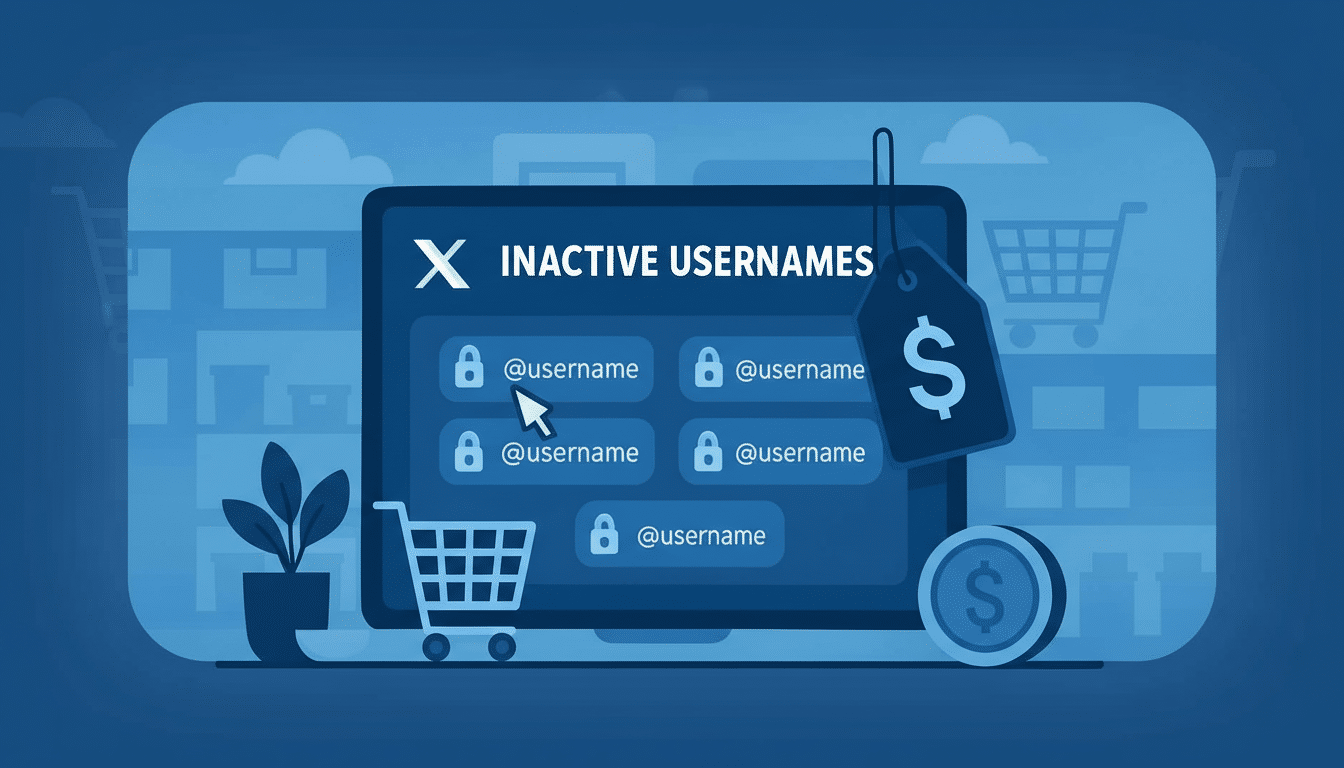X is prepared to fully open its version of a marketplace for inactive usernames, providing paying subscribers an official means to ask for or purchase desired names.
The company said the marketplace, known as Assisted Username Market, would incorporate free transfers for certain accounts with desired usernames — to be offered specifically to Premium, Premium+, and Business account holders — alongside premium, high-value sales. X referred to programmed bot squatting as both a security issue and a revenue opportunity.
- How X’s inactive handle marketplace will work
- Priority: free transfers for typical desired usernames
- Rare: short, generic and culturally valuable names
- High-value sales and criteria for rare handle selection
- Guardrails and eligibility for free handle transfers
- Why X is monetizing handles and shifting its model
- What brands and everyday users should expect next
- Rollout considerations and what to watch next

How X’s inactive handle marketplace will work
X is dividing available stock into two broad categories.
Priority: free transfers for typical desired usernames
The first, labeled “Priority,” includes the great majority of distinct but still popular usernames — for example, full names, multiple words, or sweet alphanumeric handles such as @GabrielJones, @PizzaEater, or @ParadoxAI. Premium+ and Business Premium subscribers can apply for these without additional charge. X will assign the new handle immediately to the user and reserve the old username, as it was the user’s prior one.
Rare: short, generic and culturally valuable names
The second, titled “Rare,” includes short names, generic names, or names with major cultural appeal like @Pizza, @Tom, or @One. X plans two methods for accessing these: public releases, in which several people can apply for the same username at the same time, and invitation-based immediate purchases at set fees.
High-value sales and criteria for rare handle selection
- In public drops, selection may consider the applicant’s mix of past X contributions, intended handle use, reach or engagement, and other factors when awarding a rare handle. Direct-sales pricing reflects the popularity of the word, character length, or cultural desirability.
- The company has said that price points could start around $2,500 and, for the most coveted names, stretch to seven figures. Rare names purchased will remain with the buyer even if they stop paying their subscription, unlike the free transfers.
- X offers a “Register” feature that lets users add specific inactive names to a watchlist; if the handle enters the marketplace, they’ll be notified.
Guardrails and eligibility for free handle transfers
X says requests will be reviewed, and some may be rejected, with decisions in roughly three business days. If a member cancels or downgrades later, X provides a thirty‑calendar‑day grace period before the service switches the old handle back onto their account, reverting them to the prior username.

Why X is monetizing handles and shifting its model
- This evolution from usernames into inventory is a natural extension of X’s broader move away from an ad-dependent business model. Reports throughout the past couple of years have tallied long-standing advertiser pullbacks driven by brand-safety considerations, shifts in policies, changes in measurement or attribution, and more. Subscription products and creator tools have had some success, but high-margin, scarcity-driven assets like premium X handles also play into the direct-payment trend and should encourage more users into top-tier plans.
- The company pitches the marketplace as also being a trust-and-safety play. Anonymously vacuuming in large batches of inactive names and releasing them all at once has historically led to bot swarms, resale and impersonation scams, and more. By vetting requests, staging public drops, and attaching price points to scarce inventory, X says it can reduce abuse and distribute handles more predictably.
What brands and everyday users should expect next
There are significant benefits for brands and public figures: there is now an official way to register a long-dormant handle without relying on intermediary operators in gray markets. Those who have run into username squatters in the past may want a process that ties transfers to account reputation and stated intent. However, trademark owners will have to rely on X’s existing policy, since international agreements in the sphere of domain names do not extend to social handles.
The drawbacks are the price: it introduces a pay-to-acquire relationship for names of cultural value, which can lead to fewer opportunities for small creators. The criteria for public drops will favor larger accounts and growing reach. Although paid transfers may reduce the number of spontaneous deals within this market, security teams will closely monitor social addresses changing owners due to the increased risk of scammers and accounts being “burned.”
Relative to other platforms, handle trading has long been banned on social networks, leading to increased demand in off-platform forums. Telegram, for example, in March 2022 officially launched a marketplace for “rare” and “collectible” usernames on The Open Network, where sales of short names reached six figures. The trend to watch is which companies follow this path.
Rollout considerations and what to watch next
X says it created a controlled marketplace instead of opting for a mass release that would attract bots and abuse, highlighting more equitable distribution through reviews, drops, and invites. Details to watch for as it rolls out further include anti-impersonation checks when transferring handles, any identity or payment verification around high-value purchases, and transparency in selection metrics around public drops.
In the meantime, those who are curious can check their wish lists against Premium names, register interest in dormant name ideas, and decide whether a “Premium” level adds enough to your handle to warrant applying. If X can strike a balance between safety, fairness, and price realism, the marketplace could be an interesting — and potentially lucrative — addition to its larger subscription-based strategy.

